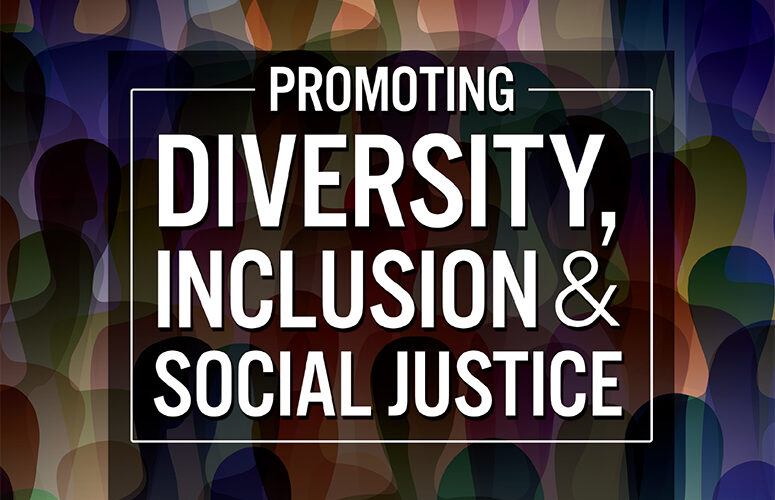
Promoting Diversity, Inclusion & Social Justice
Businesses and institutions of higher education are investing in initiatives that promote diversity and inclusion within their organizations, as well as address social justice issues.
By Jennifer Lesser, Contributing Writer On Mar 29, 2021With social justice issues remaining at the forefront of the news this past year, it’s no surprise that many businesses, both small and large, are seeking new ways to create a more diverse, inclusive workplace. From hiring policies to advisory boards, New Jersey businesses are implementing new initiatives to help promote diversity and inclusion, as well as doing their part to address the social justice issues that continue to plague the nation.
“Diversity and inclusion should be embedded in the overall business strategy of any organization and influence everything an organization does, including all aspects of the talent management life cycle, the diversity of its suppliers, environmental, social and governance (ESG) initiatives, and more. And it starts at the top,” says Elena Richards, chief diversity and inclusion officer for KPMG LLP. “Leadership engagement and support is a must to drive meaningful change … and that takes time, intention and the direct involvement of everyone in the organization.”
According to David Gonzales, global chief diversity officer for Bristol Myers Squibb (BMS), diversity and inclusion policies aren’t a new thing; it’s been at the core of the company mission for more than 15 years. “[Diversity and inclusion] is essential to our BMS values, business strategy, and performance objectives,” he says. “Through our multi-pronged strategy, we are driving representation, building a culture of inclusion, and investing in strategic partnerships aligned with our business objectives.”
Perhaps most importantly, Gonzales notes that the company takes a rigorous scientific, data-driven approach to understand where its critical investments yield the highest return in global diversity and inclusion. One such investment is the creation of People and Business Resource Groups (PBRGs), which have more than 12,000 members globally. A transformative business model, each of the eight PBRGs is managed by an experienced full-time leader who is responsible for driving business performance, innovation and leadership development, as well as strategically engaging with business, government and community partners to build BMS’s reputation and trust with external stakeholders and key community leaders worldwide.
“Our decades of experience and investment in global diversity and inclusion has prepared us to quickly and effectively address the persistent inequities that drastically affect underserved communities,” he adds. “Our global patient population is changing rapidly, and meeting the needs of today’s increasingly diverse patient population requires us to create a powerfully diverse workforce and broad inclusive culture.”
Of course, the state’s heightened commitment to diversity and inclusion extends beyond its businesses. Many of New Jersey’s colleges and universities are also ramping up their efforts to be more inclusive. “We looked at what’s happening in our country and asked ourselves what we can do to welcome a more diverse population of students. We wanted to create an all-inclusive place for those individuals, so they know we will fully embrace their cultures and lifestyles and meet all of their expectations for a college experience,” say Devon Vialva, assistant dean of diversity and director of Centenary University’s Educational Opportunity Program.
“The idea is that every student, faculty member, employee and alum should feel like they belong here,” adds Centenary University President Dr. Bruce Murphy. “No matter what business you’re in, you want your people to feel that they truly belong within your organization.”
In February of 2020, Dr. Murphy formed a Diversity, Inclusion, Belonging Advisory Board to develop initiatives that would help lead to meaningful dialogue and action across a broad range of experiences on campus. The advisory board focuses on areas including human resources, housing and billing to cultivate an environment that’s consistently inclusive to students of all races and cultures. “We can’t just look at our overall retention data, for example. It’s one thing to say we retain 70% of our students, but if it turns out we’re only retaining 10% of our minority population, then that’s a big problem,” Dr. Murphy adds.
The advisory board also aims to identify any potentially inequitable policies and facilitated the creation of a multi-cultural student center. “It’s more than just race and culture. Whether it’s learning differences or sexual preferences, we’re not afraid to have difficult conversations and come up with new approaches to create opportunities for people who fall into all different groups,” Vialva says. “We all have to be comfortable with the idea of embracing our differences and making changes to how we do things. That’s the way we will truly make a difference in the lives of our students, and all while becoming as inclusive as we possibly can.”
Many companies have also chosen to make sizeable investments in new initiatives to become more inclusive; last year, BMS and the Bristol Myers Squibb Foundation announced a combined investment of $300 million over the next five years to accelerate their health equity and global diversity and inclusion efforts. The company’s five new commitments are addressing health disparities, increasing clinical trial diversity, expanding its supplier diversity program, expanding its US Employee Giving Program, and increasing workforce diversity. “Each commitment is being pursued with specific, outcomes-driven initiatives and innovative workforce and external engagements that together will accelerate and expand our health equity and global diversity and inclusion initiatives across every dimension of our organization,” Gonzales says.
Many other companies are also launching strategic initiatives to promote a more diverse and inclusive workplace. At KPMG US, Accelerate 2025 is an initiative that’s focused on accelerating the company’s efforts to ensure that more individuals from underrepresented groups choose KPMG as their employer of choice, build careers at KPMG, and advance to secure leadership positions both at the firm as well as within the profession. The KPMG US Foundation also established the Racial Equity Action Fund in June of last year.
“The fund is dedicated to supporting community efforts addressing racial inequity, focusing on four key areas: health and welfare, education, career workforce readiness, and racial justice,” Richards says. The first round of funding benefitted the Black Mental Health Alliance, Thurgood Marshall College Fund, Year Up, and the Innocence Project, while the second round was earmarked for the National Black MBA Association, Black Girls Code, and Black Emotional and Mental Health Collective.
“Today’s marketplace is moving quickly, and inclusive, diverse teams drive innovation, produce better outcomes, and enable organizations to adapt and grow. Organizations also need to be intentional about nurturing their respective corporate cultures and ensuring everyone has the opportunity to grow, thrive and reach their highest potential – even during these challenging times when so many continue to work remotely,” Richards concludes. “When we understand each other and our differences, we can better support one another, ultimately creating a more inclusive environment.”
To access more business news, visit NJB News Now.
Related Articles:





